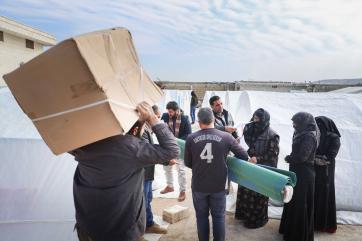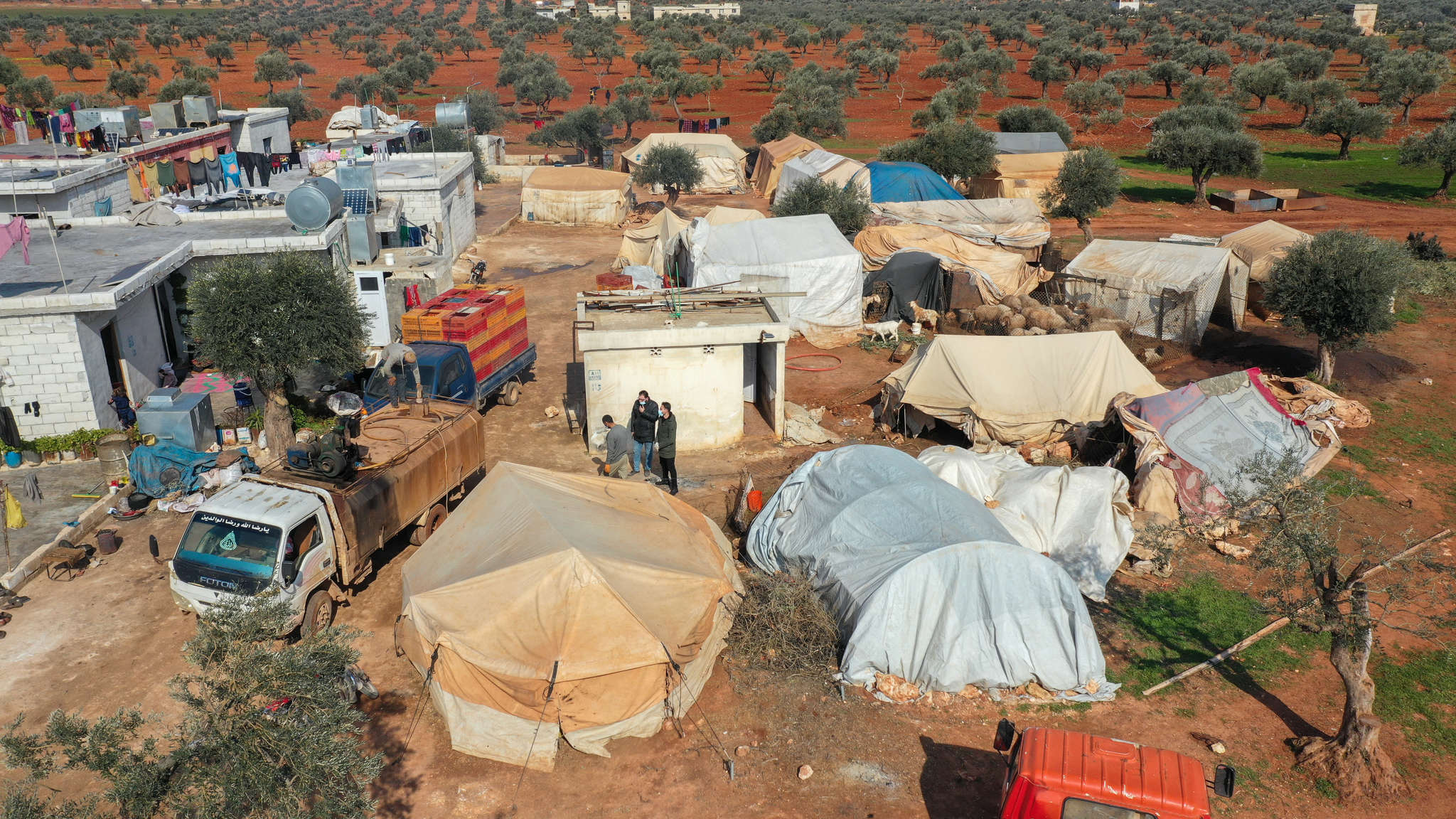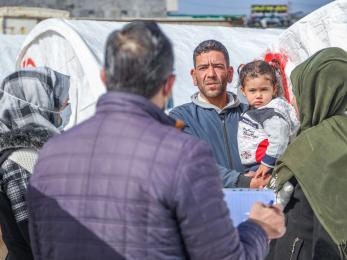Breadcrumb
Syria

Mercy Corps has worked in Syria since 2008, providing essential support including water, food, shelter, sanitation services, and livelihoods assistance to Syrians displaced multiple times throughout an extended period of conflict. In 2024, our work reached over 1.5 million people across the country.
The context
Through the more than 13 years of conflict, the people of Syria have endured violence, displacement, suffering, and loss amid one of the worst humanitarian crises of our time. With the fall of the government in December 2024, Syria embarks on a new chapter of both immense opportunity and challenge.
While December 2024 marks a watershed moment for the country, humanitarian needs in Syria are dire. Over 16 million people — nearly 70% of the population — need humanitarian assistance. Years of conflict, compounded by the devastating 2023 earthquake, economic collapse, and repeated displacements, have left millions struggling to meet basic needs like food, clean water, and shelter.
More than nine in 10 people are living below the poverty line, with limited access to education and job opportunities. And a record 12.9 million people—around 54% of the entire Syrian population—are going to sleep hungry every night.
With over 5.4 million Syrians displaced beyond the country’s borders and millions more within, hundreds of thousands of people may decide to return home in the coming months. A safe and sustainable return will require significant investment in recovery and reconstruction efforts as well as support of access to basic services.
Our impact
Mercy Corps is on the ground in northern Syria working to deliver essential supplies to communities affected by the fallout of conflict and disaster. We remain committed to responding however we can to reach people in need. In addition to addressing emergency needs, we are supporting Syrian communities in both Syria and neighboring countries so they can move beyond survival mode, become more self-reliant, and have opportunities to earn an income.
In Northwest Syria, Mercy Corps is providing critical water, hygiene and sanitation services in 45 displacement camps and is preparing to distribute shelter and other essential supplies to those affected by the conflict. In Northeast Syria, Mercy Corps is partnering with communities to meet their immediate humanitarian needs, while providing opportunities for longer-term recovery and resilience building.
Meeting immediate needs and improving coping mechanisms
Meeting the pressing and present humanitarian needs remains vital. We are committed to finding solutions that give people more options and resources to meet their immediate needs, become more self-reliant, and be more resilient to future challenges.
We work with families who have fled violence or whose homes were destroyed by the 2023 earthquake, finding them safe places to stay and providing household basics like blankets and pots for cooking. For many, this is not the first time they have had to leave their home, and each time they are forced to leave things behind and rely on less to start over. Whenever possible, we purchase goods locally to support the local economy in Syria. Often goods are available, but people simply don’t have the money to afford them.


With shelter being a critical need among displaced people, harsh weather conditions—especially in the winter months—can be dangerous. As displaced households enter camps, our team provides winter assistance support to families with items including blankets, plastic sheets, jerry cans, solar lamps, mattresses, and carpets.
Growing economic opportunities
Whenever possible, we work to provide people with the means to support themselves and their families. We work with farmers to increase their yields, and with young people to teach them new skills, depending on what the demand is in the areas where they live. We also support small businesses with skills training and cash grants, so they can not only survive but grow and hire more people from the local community.
Mercy Corps’ research shows that Syrians have adapted their livelihoods amid conflict and that access to functioning local economies during instability offers civilians more and better ways to cope. We see a growing need for training and resources that will give Syrians choices for how they earn a living and provide for themselves.
Increasing access to clean water and food


Conflict and disaster have been the main drivers behind water and food insecurity. Mercy Corps delivers water, food, cash assistance, and sanitation services to people who have been forced from their communities by violence. After a massive earthquake in 2023 damaged infrastructure in Northwest Syria, we launched activities to rehabilitate water systems and built water points in displacement camps to provide more sustainable access to clean water. In 2024, our programs in Syria helped connect more than 1.4 million people to clean water.
And to grow access to nutritious food among communities, Mercy Corps provides support by both responding with lifesaving food relief during emergencies and improving long-term resilience through sustainable ways to increase crop and livestock production.





